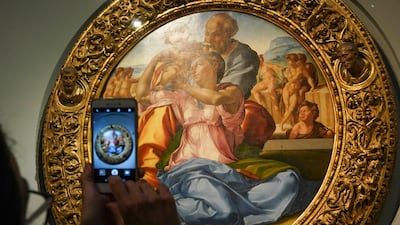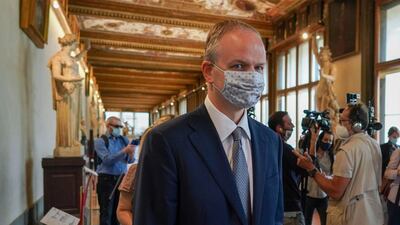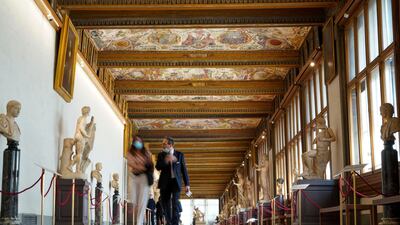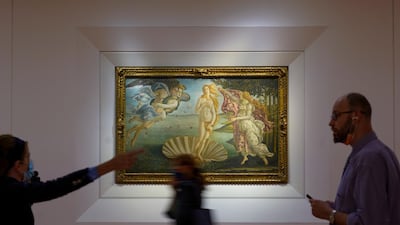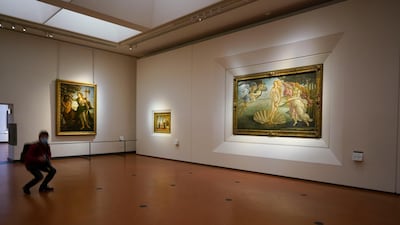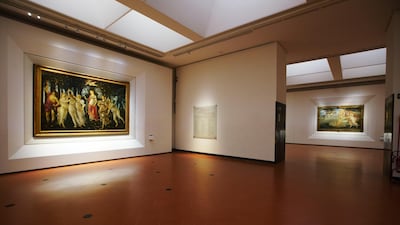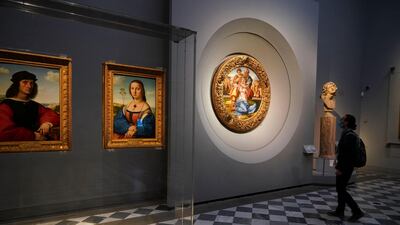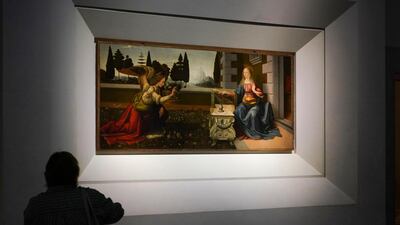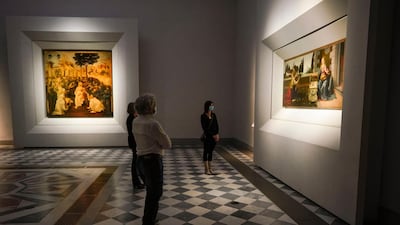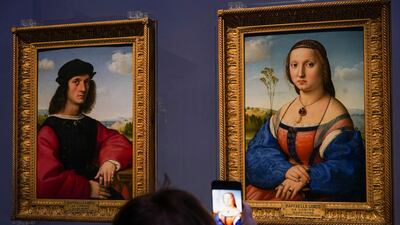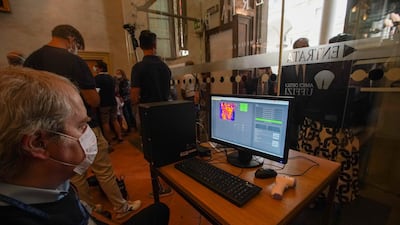The Uffizi Galleries, the most-visited museum in Italy, is open after three months of Covid-19 lockdown, delighting art lovers who don't have to jostle with throngs of tourists thanks to new social distancing rules.
Uffizi director Eike Schmidt told The Associated Press on Wednesday that the government-ordered closure of museums during coronavirus containment measures meant one million fewer visitors and 12 million Euros (Dh49.8m) less in revenue for that period.
Now, a maximum of 450 people at one time are allowed in the Uffizi’s many galleries, chock full of some of the art world’s greatest masterpieces.
That means visitors no longer have to elbow their way to admire such masterpieces as Botticelli's Birth of Venus.
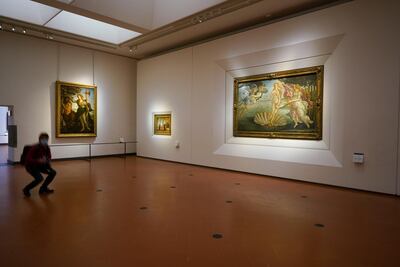
First in line to enter was Laura Ganino. She was studying in Florence when the lockdown was declared in early March and now was finally about to leave the Tuscan city, since Italy on Wednesday dropped restrictions on travel between regions in the country.
Schmidt said tourists from overseas weren't expected to come to Italy in large numbers, likely before 2021. Ganino took advantage of the smaller number of visitors. Crowds, she said, pose “an obstacle between me and what I'm observing."
Right behind her in line was Patrizia Spagnese, from Prato in Tuscany. With crowds, "I get distracted, I tend to tire easily,'' she said, so with her husband she was eager to savour the beauties inside the Uffizi, which she had never seen in its entirety despite many times being in Florence.
Schmidt said social distancing heralds a new era in art experience. Without being surrounded by rushing crowds, art lovers can better “feel these emotions that these works of art always transmit", he said.
Visitors to the highly popular Vatican Museums, which reopened two days earlier, similarly could appreciate opportunities rarely available in the past. These include enjoying Michelangelo's frescoed ceiling in the Sistine Chapels without many other tourists jockeying for a spot where they can crane their neck to observe the masterpiece overhead.
As an added bonus, the Vatican Museums visitors can now see work by Raphael, which had long been attributed to that of his artistic workshop, but that after several years of delicate cleaning and restoration, experts decided were really painted by him shortly before his death in 1520.
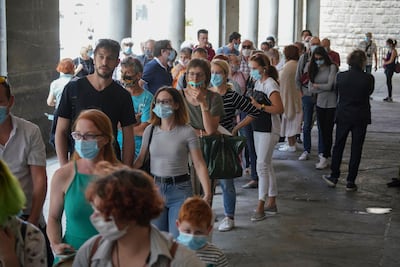
Two female figures, each with one breast bared and serving as allegorical representations of justice and friendship decorate one of the walls of the Hall of Constantine.
The Vatican had planned to unveil the "rediscovery" of Raphael's work at an international convention of art experts in April. But the coronavirus outbreak forced that plan to be scrapped.
Instead, rank-and-file art lovers who visited the rooms of the Vatican decorated by Raphael, one of the highlights of the Museums tour before they reach the Sistine Chapel, can now admire the feminine figures. Raphael painted the figures with oil-based paint, very unusual for mural painting at the time.
